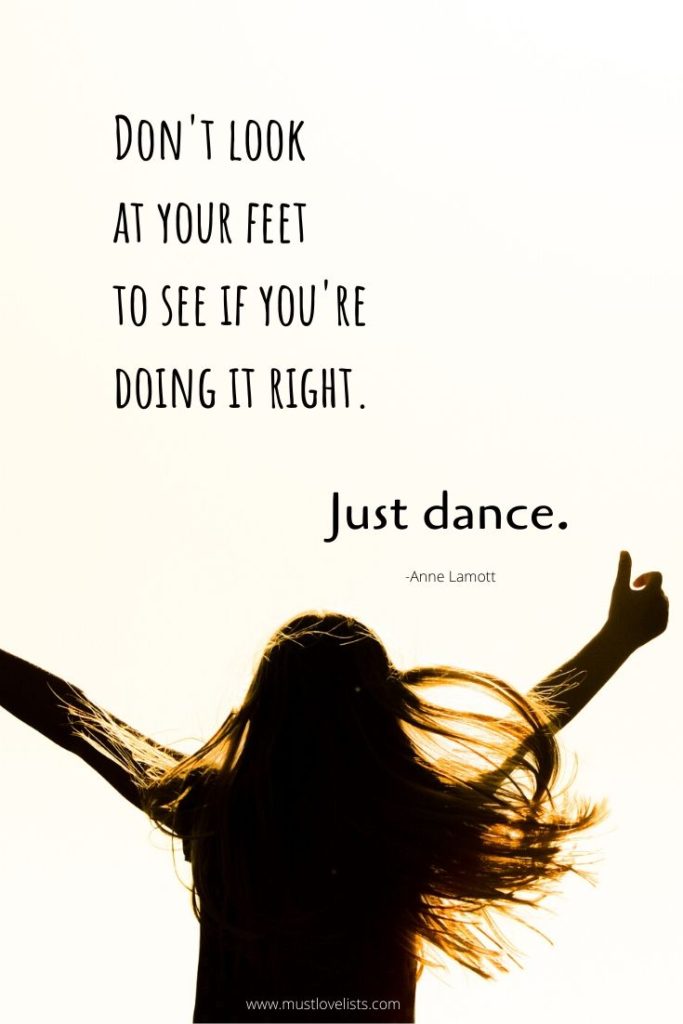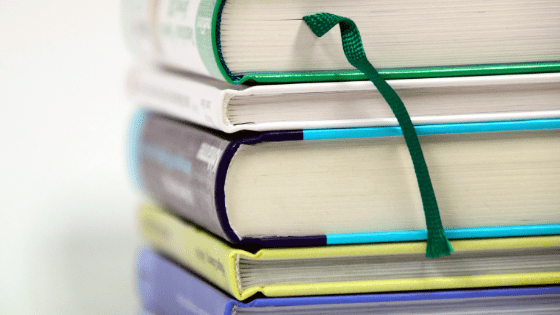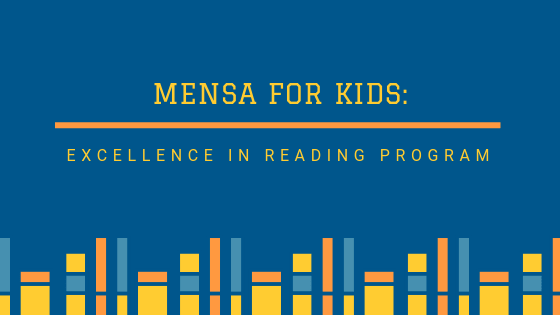I ingested somewhere in the neighborhood of 60 books in 2019, which is kind of a lot of words. A few years ago, I got into the habit of taking notes while I read, so that I can look back later and remember the things I found most helpful or important. And, I figure what is helpful or important for me might also be of interest to you.
So…here are my “Book Bites” from 2019. There’s not really a meaningful order, and don’t worry, I did not include all 60 books here! Just the things that most stood out to me. Conspicuously absent from these bits and pieces are Bossypants by Tina Fey and Is Everyone Hanging Out Without Me? by Mindy Kaling. I read both in 2019, but there’s simply too much funny in those to condense it down to a sentence or two.
(Disclosure: As an Amazon Associate I earn from qualifying purchases. This means that if you click a link and make a purchase, I may receive a small commission at no additional cost to you. I only recommend products I use and love or would love to use! For full disclosure details, click here.)
Bird by Bird by Anne Lamott

“E.L. Doctorow said once said that ‘Writing a novel is like driving a car at night. You can see only as far as your headlights, but you can make the whole trip that way.’ You don’t have to see where you’re going, you don’t have to see your destination or everything you will pass along the way. You just have to see two or three feet ahead of you. This is right up there with the best advice on writing, or life, I have ever heard.”
“Almost all good writing begins with terrible first efforts. You need to start somewhere.”
“Try looking at your mind as a wayward puppy that you are trying to paper train. You don’t drop-kick a puppy into the neighbor’s yard every time it piddles on the floor. You just keep bringing it back to the newspaper.”
When Breath Becomes Air by Paul Kalanathi
“That message is simple: When you come to one of the many moments in life when you must give an account of yourself, provide a ledger of what you have been, and done, and meant to the world, do not, I pray, discount that you filled a dying man’s days with a sated joy, a joy unknown to me in all my prior years, a joy that does not hunger for more and more, but rests, satisfied. In this time, right now, that is an enormous thing.”
“The main message of Jesus, I believed, is that mercy trumps justice every time.”
“I began to realize that coming in such close contact with my own mortality had changed both nothing and everything. Before my cancer was diagnosed, I knew that someday I would die, but I didn’t know when. After the diagnosis, I knew that someday I would die, but I didn’t know when. But now I knew it acutely. The problem wasn’t really a scientific one. The fact of death is unsettling. Yet there is no other way to live.”
Blink by Malcolm Gladwell
“The key to good decision making is not knowledge. It is understanding. We are swimming in the former. We are desparately lacking in the latter.”
168 Hours by Laura Vanderkam
“True time management is about filling our lives with things that deserve to be there.”
Off the Clock by Laura Vanderkam
“My 24 hours will pass. They can be filled with “nothing” or something more intriguing.”
Three Versions of the Self
- Anticipating self: wondering about, planning, and worrying about the future
- Experiencing self: is in the here and now
- Remembering self: thinks back to the past
Bliss is possible in the past and in the future, but seldom in the present. The experiencing self has to deal with all the bother and is tired. Effortless pleasure wins out over the more effortful variety.
If my anticipating self wanted to do something, my remembering self will be glad to have done it. (Even if my experiencing self feels tired or frustrated in the moment of doing it.)
What the Most Successful People Do Before Breakfast by Laura Vanderkam
“The best morning rituals are activities that don’t have to happen and certainly don’t have to happen at a specific hour. These are activities that require internal motivation.”
“If you wait until the end of the month to save what you have left, there will be nothing left over. Likewise, if you wait until the end of the day to do meaningful but not urgent things like exercise, pray, read, ponder how to advance your career or grow your organization, or truly give your family your best, it probably won’t happen, If it has to happen, then it has to happen first”.”
We Have Met the Enemy by Daniel Akst
“Our choices add up; each one influences others, and cumulatively a series of delightful short-term choices can leave us much worse off in the long run.”
“Giving in to procrastination feels bad even while it feels good, like eating too many potato chips.”
How We Decide by Jonah Lehrer
“The process of thinking requires feeling, for feelings are what let us understand all the information that we can’t directly comprehend.Even when we think we know nothing, our brains know something. That’s what our feelings are trying to tell us.Unless you experience the unpleasant symptoms of being wrong, your brain will never revise its models. Before your neurons can succeed, they must repeatedly fail. There are no shortcuts for this painstaking process.”
- Simple problems require reason. (something with less than 5 variables)
- Novel problems also require reason (how does past experience help solve the problem?)
- You know more than you know. (pay attention to your instincts, consider your emotions valuable input)
- Think about thinking. (be aware of what kind of decision you are making, study and learn from mistakes)
The Achievement Habit by Bernard Roth

“Most changes take place in small increments”
“You can’t get enough from more.”
How to solve a problem?
1. Hard work. No magic methods that substitute for attention and intention.
2. Supportive environment. Clear the clutter, display inspiration.
3. Relax. Take breaks, dream.
4. Brainstorm. No judgment.
5. List.
6. Meta-lists (lists of things to make lists of)
Learn Better by Ulrich Boser
“Expertise demands fluency in the basics.”
“We need moments of reflection and introspection to make sense of our thoughts.”
- To learn a new skill you need motivation – find the value. Does it have meaning to you?
- Learning to learn = the ultimate survival tool
- Quiz yourself to remember/repeat back out loud
- Make learning physically active
- Reflection has greater impact than more practice – stop and think!
Process of Learning
- Find value – look for relevance
- Create targets – clear goals
- Develop – practice and get feedback
- Extend expertise – explain, teach
- Relate skills – look for relationships and connections
- Rethink understanding – exposure to diverse thinking, reflection
Willpower by Ray Baumeister
Four areas of willpower
- control of thoughts
- control of emotions
- control of reactions (impulse control)
- control of performance (focusing energy, managing time, persevering)
Strengthening willpower
- We have a limited supply of willpower and it is highly dependent on glucose and sleep.
- Making decisions depletes willpower. Give yourself fewer choices when possible (repeat meals, repeat outfits, etc.)
- Key is to concentrate on a habitual behavior, such as “sit up straight” or a speech habit. Practicing these small things strengthens overall willpower.
- Increased self-control in one area leads to better self-control in other areas as well. Creating orderly habits improves self-control.
- Goals and planning – best success comes from setting weekly or monthly priorities and only have a few daily to-do tasks
Weight loss and willpower
- set realistic goals (use your self-control to make small, lasting changes gradually)
- observe your cues (internal – e.g. emotional eating, and external – e.g. time of day)
- arm yourself with defensive strategies (I can have it later, don’t buy it, out of sight, brush your teeth, financial commitments)
- specific plans for potential situations (if X happens, then I will do Y)
- monitor and track (food logs, slow down eating, drink water before meals)
The Power of Habit by Charles Duhigg
Keystone habits: exercise, family meals, make your bed, exert willpower
“Rather, to change a habit, you must keep the old cue, and deliver the old reward, but insert a new routine.”
“Self-discipline predicted academic performance more robustly than did IQ. Self-discipline also predicted which students would improve their grades over the course of the school year, whereas IQ did not.… Self-discipline has a bigger effect on academic performance than does intellectual talent.”
“That’s why signing kids up for piano lessons or sports is so important. It has nothing to do with creating a good musician or a five-year-old soccer star,” said Heatherton. “When you learn to force yourself to practice for an hour or run fifteen laps, you start building self-regulatory strength. A five-year-old who can follow the ball for ten minutes becomes a sixth grader who can start his homework on time.”
The Rhythm of Life by Matthew Kelly

“Dedicate yourself to the things that deserve your dedication.”
“Relationships don’t thrive under the pressure of our modern-day schedules. All of life’s important relationships thrive under the condition of carefree timelessness. Learn to waste time with the people you love.”
“We need a diet of the mind just as much as we need a diet of the body. The ideas we feed our mind today tend to form our lives tomorrow.”
The Best Yes by Lysa Terkerust
“Whenever you say yes to something, there is less of you for something else. Make sure your yes is worth the less.”
“While my heart wants to say yes, the reality of my time makes this a no.” I’ve learned the best “no” answers are graciously honest.”
Your Best Year Ever by Michael Hyatt
“By reaching for what appears to be impossible, we often actually do the impossible; and even when we don’t quite make it, we inevitably wind up doing much better than we would have done.”
Write it Down, Make it Happen by Henriette Anne Klauser
” Writing it down moves thoughts from the realm of fantasy to the realm of imagination. Writing something down is a commitment.”
It’s Never Too Late to Begin Again by Julia Cameron
“Often, when we say it is “too late” for us to begin something, what we are really saying is that we aren’t willing to be a beginner. But when we are willing to dip our toe in, even just a little, we are rewarded with a sense of youthful wonder.”
Make It Happen by Lara Casey
“Busy is the enemy of peace. Busy takes us away from our purpose. Busy is not truly productive in the big picture. Busy means life’s joys and surprises can’t find a way into our lives because we’re moving too fast to see and experience them. I don’t know about you, but I don’t want to move so fast that I miss my life.”
“Nurturing a plant takes a commitment to gradual, daily care. You can’t grow something by soaking it in a bucket of water all at once. In the same way, you can’t work hard on a goal, giving it your all for one day out of your life, and then forget about it come January 2. Commit to daily tending. Our lives will bloom through daily decisions and habits—daily tending, nurturing, and pruning—not just the giant leaps made once in a while.”
Hyperfocus by Chris Bailey
“We are what we pay attention to, and almost nothing influences our productivity and creativity as much as the information we’ve consumed in the past.”
The Happiness of Pursuit by Chris Gillebeau

“A good plan allows for plenty of spontaneity and room for change – but without a plan at all, it’s difficult to work toward something significant over time.”
“Build in a timeline. Connect your skills and interests with an extended challenge—such as visiting every basilica, or cooking nearly two hundred unique meals.”
Rethinking School by Susan Wise Bauer
Fun exercise to learn about your kids and help your kids develop their own self-awareness:
Pay attention to when you’re:
1. Bored, and having fun
2. Confused, and interested
3. Frustrated, and happy
Look for patterns
For older students, keep a journal
5th grade & above: describe your perfect day
1. What time do you wake up?
2. What’s the first thing you do?
3. What do you eat for breakfast?
4. Do you go somewhere (where) or stay home (what do you do)?
5. What do you have for lunch? Where do you eat it?
6. How do you spend the afternoon?
7. What about dinner?
8. What do you do after dinner?
9. When do you go to bed?

In retrospect, it seems as though I spent a lot of 2019 reading books dealing with self-control. I’ll have to do an informal survey of friends and family to see if all my head knowledge is translating into practice. So far in 2020 I’ve made progress with the habits I wanted to change…but the year is young (literally, we’re only a week in!). My reading list for 2020 has several fiction choices on it; I’m going to lighten things up a bit.
To find out which books I’ve chosen for this year, read my 2020 Reading List. It’s actually comprised of 36 books that I meant to read in the last decade, but didn’t because I got sidetracked with kids and life and all the other books in the world.


























